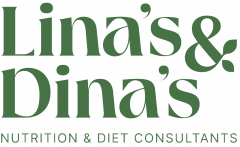
How to Manage Stress and Emotional Eating During COVID-19?
During these times of uncertainty with the COVID-19 outbreak, you may be feeling stressed, bored, lonely, sad, afraid or anxious. These emotions can lead us to eat when we’re not really hungry. This is called emotional eating.
How Stress Can Affect Your Appetite?
Emotional eating differs from occasionally using food as a reward or remedy. Instead, eating food becomes a primary coping mechanism to deal with emotions. It can be hard to know when hunger is physical or emotional.
Stress is also strongly linked to emotional eating. Short-term stress can reduce appetite. On the other hand, continued stress increases cortisol levels in our body. Cortisol is a hormone and when the body releases it in response to stress; this can increase appetite and the motivation to eat.
Generally, people with prolonged stress turn to foods high in sugar and fat. Eating these kinds of foods activates dopamine, the “reward” neurotransmitter. Foods high in sugar and fat make you feel better in the moment and they are referred to as “comfort foods” because they appear to counteract stress.
Tips for Managing Stress and Emotional Eating
1. Be Aware that Your Eating Patterns Might Change
During times of stress, there are three possibilities regarding your food intake: it might increase, decrease or stay the same. Listen to your body and be alert to your hunger and satiety cues. Satiety is when you feel full from food. Make sure you’re eating healthy foods full of nutrients and drinking plenty of water. Try to avoid skipping meals, as it makes you more prone to emotional eating and binge eating.
2. Be Present
A great strategy to better connect with your hunger and satiety cues is to practice a technique called mindful eating. To eat mindfully, remove distractions (namely screens, like TVs, cell phones and laptops), avoid eating directly from the package and focus on the sensorial properties (smell, taste, texture) of the foods.
3. Get Enough Sleep
Research has found that getting too little sleep is related to both over-eating and an increased desire for energy-dense (high calorie) foods. Although sleep needs may vary from person to person, most healthy adults need between 7 to 9 hours of sleep daily. Some ways to improve your sleep are: establish a regular sleep schedule, avoid caffeine and electronics use before bedtime and reduce irregular or long naps during the day.
4. Try to Keep a Daily Routine
Routines should incorporate sleep, exercise, safe methods of socializing and meals. Having regular times for meals and snacks may help some people avoid mindless trips to the kitchen.
5. Practice Self-compassion
Feeling guilty, shameful or angry towards yourself can continue the emotional eating cycle. Remember: the best gift you can give yourself is love and acceptance. Know that you are not alone, as we’re all going through difficult times.
If you face a difficulty to the portion & the type of the food that is good & suitable for you, you can subscribe with us at Lina’s & Dina’s in order to help & guide you in healthy & balanced way. We offer an international dishes & meals to prevent any boredom or deprivation. Lina’s & Dina’s team will help you to follow a healthy lifestyle in an enjoyable way.
